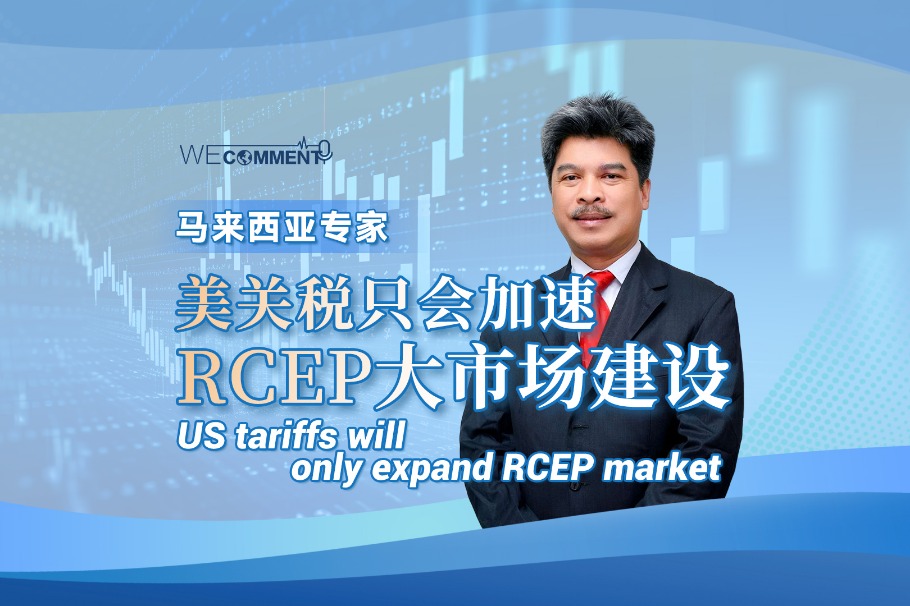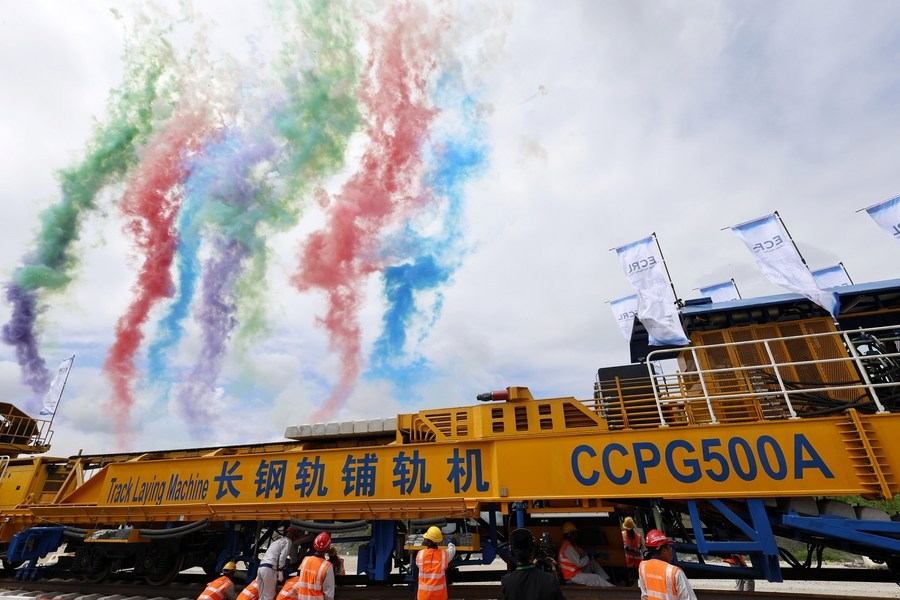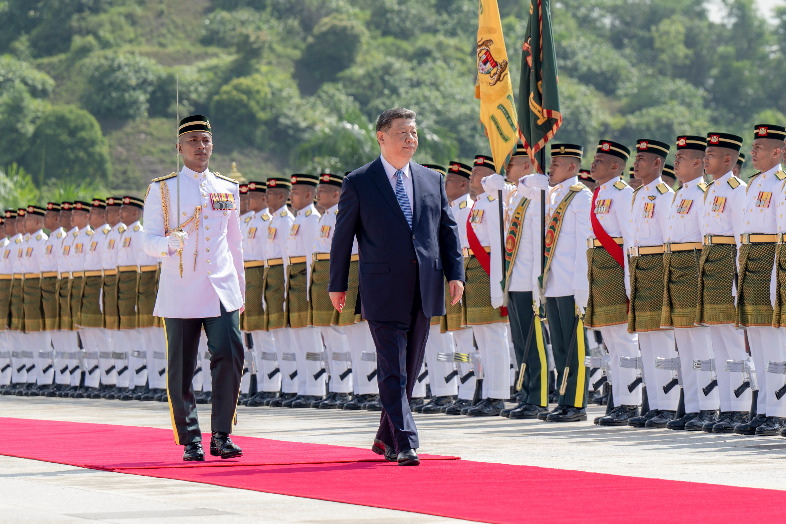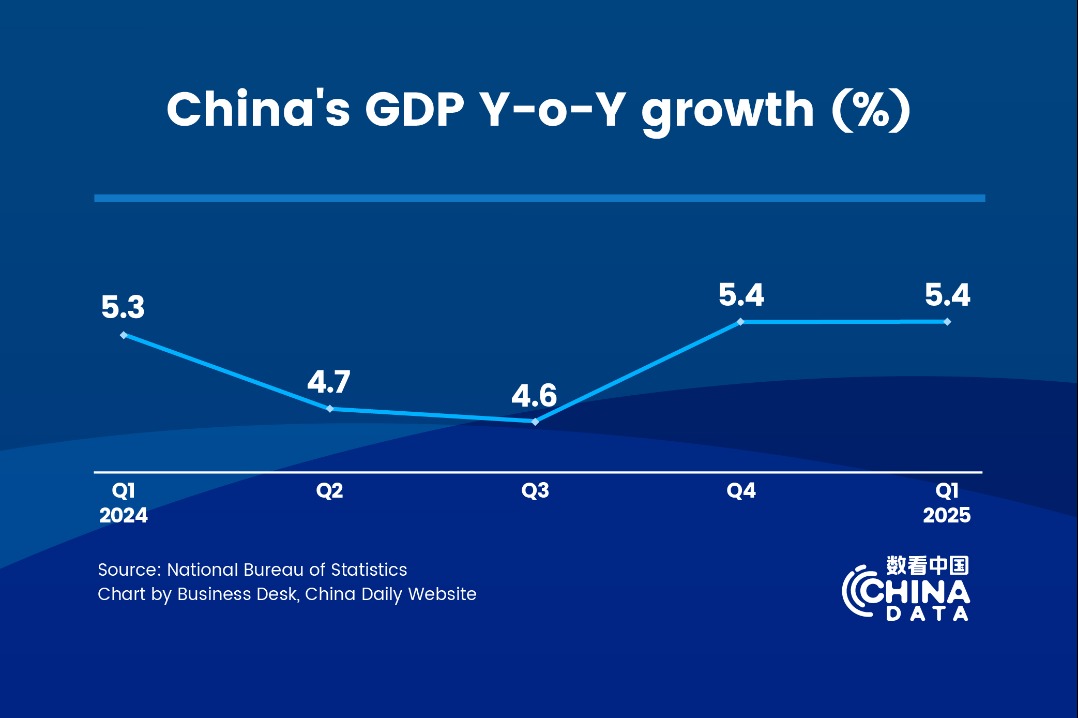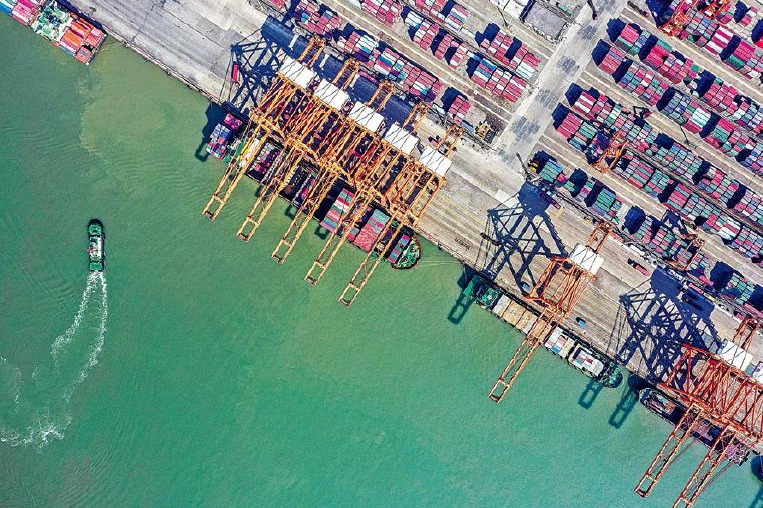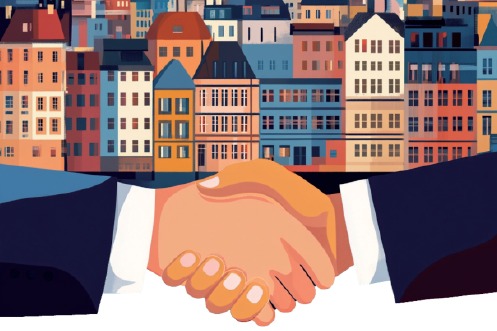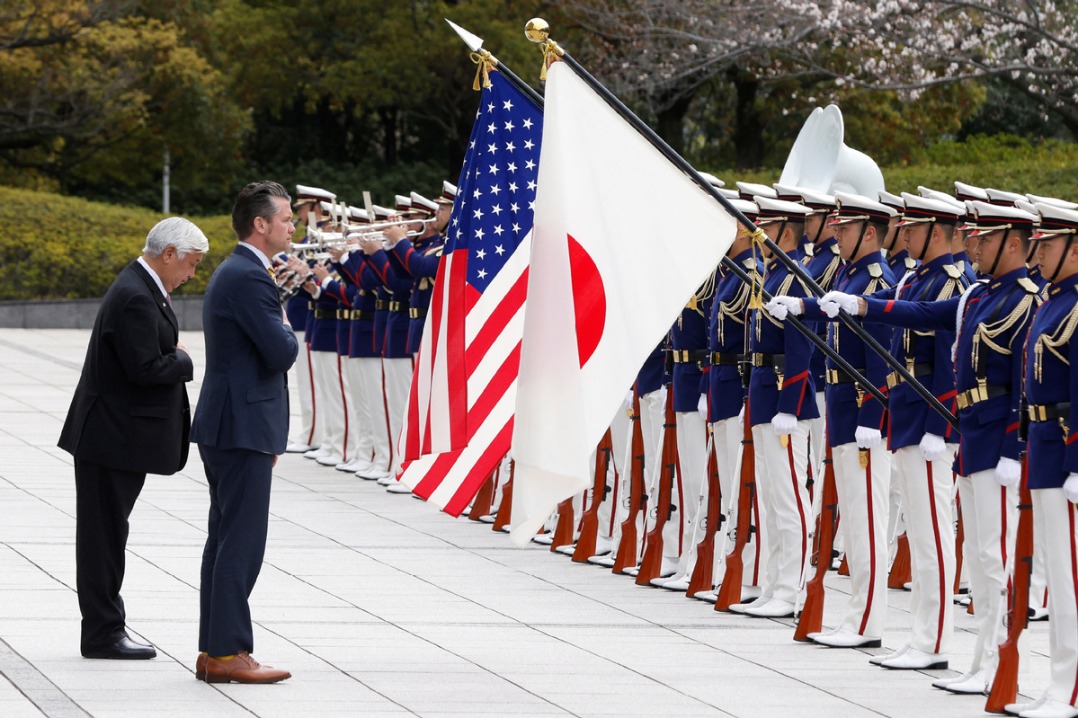Appeasement will not relieve the EU of pressure: China Daily editorial

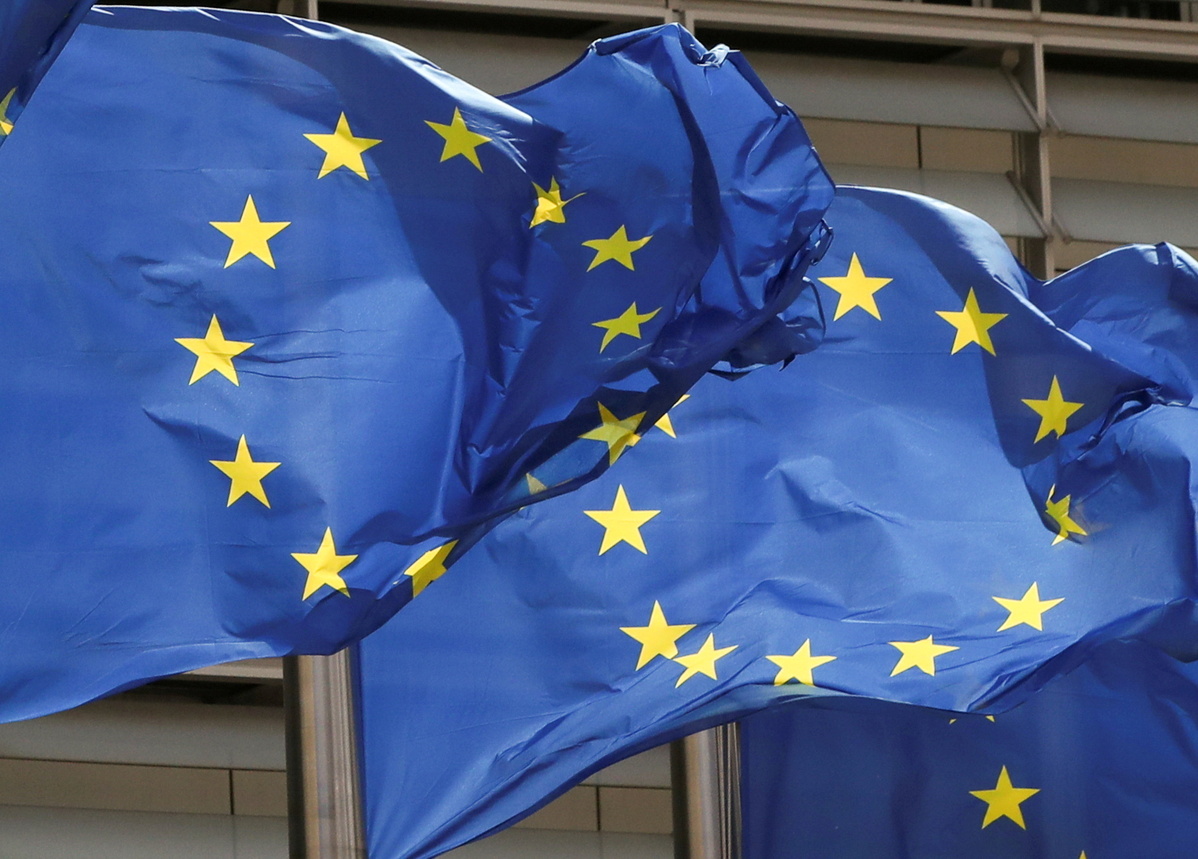
As a major economic powerhouse and trading entity, the European Union holds great responsibility for upholding an open global economy. It must therefore avoid sending the wrong signals to Washington, which has been engaging in unjustified global trade and tariff conflicts in pursuit of its geopolitical objectives.
Brussels has been working hard lately in the hope of persuading Washington to spare the bloc from its punitive tariffs, which include 25 percent on EU steel, aluminum and cars. On Tuesday, the EU officially paused for 90 days its retaliatory tariffs against the US' steel and aluminum tariffs despite the fact that the US having not suspended its metal tariffs.
Emphasizing the EU's readiness for a fair deal and reciprocity, notably through its proposed 0-for-0 tariff arrangement on industrial goods and addressing nontariff barriers, European Trade Commissioner Maros Sefcovic travelled to Washington early this week to explore a mutual solution within the 90-day window.
However, the zero-tariff offer, which was first proposed by European Commission President Ursula von der Leyen last week, has already been rejected by US President Donald Trump, who instead demands the EU buy $350 billion of US energy each year. Such a move will keep the US energy giants, which were major donors to the US president's election campaign, happy. But it has drawn sharp criticism from experts and environmental groups for creating new EU dependence on US fossil fuels, not to mention that liquefied natural gas from the US is expensive and the demand in the EU is limited.
Furthermore, the EU's willingness to procure more US weaponry, despite calls from some EU leaders to reduce reliance on US arms and prioritize local EU purchases, raises concerns. The EU's heavy dependence on US military equipment only underscores its vulnerabilities and the need for its strategic autonomy.
Italian Prime Minister Giorgia Meloni, who was the only EU leader to attend Trump's inauguration as president in January, has meetings with Trump in Washington on Thursday and Vice-President JD Vance on her return to Italy on Friday. Vance's recent remarks have underscored the EU's security dependence on the US and the complexities of the transatlantic relationship and once again highlighted the need for the EU to assert its own strategic autonomy. The EU should not let its appeasement efforts fuel the US administration's geopolitical ambitions.
Vance told US media on Monday that "it's not good for Europe to be the permanent security vassal" of the US. This was a typically blunt message from the US vice-president. But it is in line with those who view the US' tariffs on the EU as being merely leverage for the US administration to get Europe to take more responsibility for its own security. In that way the EU can continue the containment pressure on Russia while the US focuses its attention on the Asia-Pacific. Dependence on the US security umbrella and energy is one of the major reasons that the EU is vulnerable to the Trump administration's pressure tactics.
Of course, Brussels is worried that the trade war will cause more hardship for the already difficult EU economy. It will also be hard for the 27 member states to agree on retaliation against the US, especially the use of the Anti-Coercion Instrument. However, since the US leader has threatened the tariffs for issues totally unrelated to trade, it would be naive for the EU, which has such a weak bargaining position, to think that it will be able to appease the transactional US president from taking a yard once it gives an inch.
The EU should therefore bolster its resolve and assert its global leadership credentials by collaborating with like-minded nations to counter the tariff-wielding bullies in Washington that are tearing up the global trading system and causing huge damage to the global economy in pursuit of a golden past.
Strengthening ties with China and other partners who stand in opposition to the tariff war launched by the Trump administration can pave the way for a more resilient and rules-based global economic order.
The EU's latest outreach to China and some other countries is a step in the right direction, one it should more decisively go in. It is hoped that as the US retreats from the global trading system and global treaties to focus on fighting with windmills, the EU will seize the opportunity to step up with others and fill the void, reinforcing the principles of an open global economy and advocating a rules-based trading system. By standing firm and rallying international cooperation, the EU can assert its position as a global leader and contribute to a more stable and prosperous global economic landscape.
















